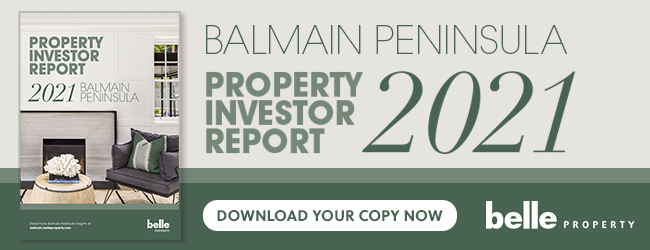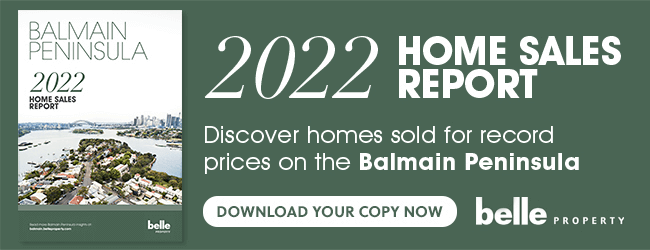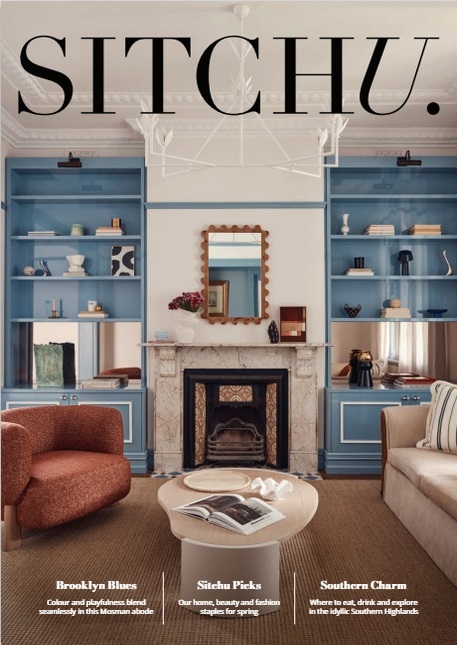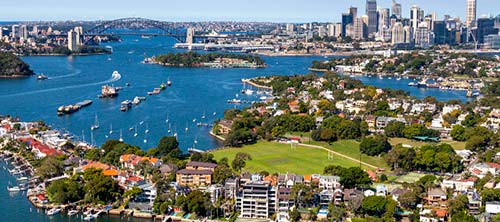As more of us embrace sustainable living and the global climate crisis is back on the centre stage, we’re looking for more ways to be more sustainable. But it can be hard to know what to choose. Take aluminium cans, for example. They seem to be a better choice than plastic but we have to take into account the enormous amount of energy used for their production. The aluminium smelter at Tomago consumes 10 per cent of NSW’s power. However, it also acts as a huge battery. Several times over the past few years, the operators have shut down the smelter due to heatwaves to avoid load shedding in the rest of the state or to smooth price volatility. So is it a black hat or white hat business? Overall, they come out on the right side: aluminium is still a better long-term packaging option than plastic.
However, there are many tips that you can make without complex analysis:
Conserve energy
One of the easiest-to-implement eco-friendly ideas for your home in Balmain or the Inner West is by saving energy. You can do this by:
- Shopping locally. While we embraced ‘local’ during the pandemic purely to support our local businesses, we also used less energy by not travelling out of the area.
- Replacing traditional light bulbs with durable and energy-efficient LED lights.
- Using a smart power strip to help you avoid phantom loads and energy wastage.
- Investing in solar panels. Even if you aren’t ready for the complications of feedback tariffs, a solar hot water system is straightforward and will still cut your energy costs significantly.
- Reducing draughts with weather strips and ensuring your home is fully insulated.
Aside from conserving energy, opting for clean energy sources such as solar energy is an eco-friendly lifestyle choice.
Save water
Water is another precious resource that we need to be conserving. To reduce your water consumption, the following tips can help:
- Use grey water for cleaning your garage and occasionally watering ornamental plants. Don’t use it on your vegetable or herb garden, though. For that, you can leave a bucket in your shower and collect the water you have running before it’s warm enough to step under. If you have more than one person in your household, it doesn’t take long to fill a bucket; you’ll get about one litre per person per shower.
- Check your plumbing for leaks or any signs of damage and get them fixed. You’d be surprised at how much water is wasted from leaks alone.
- Turn off the tap while brushing your teeth, shaving and washing your hands or face.
- Replace your showerheads with low-flow showerheads. Sometimes these aren’t suitable in apartment buildings that have lower water pressure but you can check with a plumber or your strata manager.
- Get a rain-harvesting tank. These days, you can find slim tanks that will fit neatly in your garden and it doesn’t take much rainfall to fill a 5,000-litre tank. To work out how much water you’ll collect, simply multiply the square meterage of your roof by how many millimetres of rain fell. So 10 mm falling on 10 sqm would give you 100 litres.
Of course, I’m sure you’re all using a reusable water bottle. We keep several around the house and in the car so we’re never caught out.
Reduce food waste and packaging
Happily, if you want to participate, the Inner West Council have opened up their food recycling service to all in the Inner West. Head to the web page to see how you can recycle food and what support you can expect.
Like most types of trash, food waste can end up in landfills and produce toxic methane gas. To reduce food waste, you can:
- Compost at home using food scraps and other organic waste.
- Buy only what you need to avoid throwing unused items that have exceeded their ‘best by’ dates.
- Make a weekly meal plan, buy your ingredients and cook your own food.
- Buy seasonal locally grown or sourced food. (How much energy is used to transport US cherries to Australia for sale out of season?)
- Support local farmers’ markets and businesses. We go to the Orange Grove market in Leichhardt or to the Addison Road fresh produce market when we can.
- Bring a reusable bag and your own containers for measuring and keeping items you can buy without any packaging.
- Opt for items that aren’t packed in plastic or that minimise plastic packaging. So, for example, when buying meat, try to buy directly from a butcher rather than buy plastic-packed meat from a supermarket.
If you want, participate in the zero waste movement to learn about more ways to significantly reduce waste of all forms.
Be thoughtful when shopping
Reduce, reuse, recycle – this philosophy is very much alive as people strive to live sustainably. It’s easy to apply, too.
We aren’t suggesting that you go on a shopping spree to replace plastic products or clothing that was produced unsustainably but it is worth checking out alternatives for next time you need something. Bamboo toothbrushes, glasses frames from recycled plastic, skincare ranges (including Biode) in compostable packaging, metal or bamboo straws (that you can pick up at your local post office sometimes); body wash and shampoo bars; you get the idea. These days, it isn’t too hard to source a planet-friend product. And when things break down, instead of sending that item to landfill, find a ‘repair café’ like The Bower in Marrickville and see if you can get it mended. Shoes, too, (if you buy good-quality shoes in the first place) will last for years with careful maintenance and regular resoling. Aldi recently offered a portable home composter. Colgate-Palmolive recently launched toothpaste in a biodegradable tube (although we’ll believe it when we see more evidence). You can buy washing detergent in a box instead of a bottle (that mostly contains water anyway and uses more energy to transport). Think about using bi-carb soda and a concentrated detergent for most of your cleaning. None of these tips require major changes to your lifestyle but they’ll have an impact if we all follow them.
Think for yourself and the planet
There are many eco-friendlier tips you can adopt. While some have taken sustainable living to the extreme by going vegan and buying only hemp and bamboo clothing, you can start small and work from there.
Be critical and do your research so you know that the products you are using are sustainable, from raw material sourcing to transport. What’s important is to commit and start today.
Looking for help selling your home or renting your investment property? Our team at Belle Property Balmain support homeowners across Balmain, Balmain East, Birchgrove, Rozelle and Lilyfield. Feel free to get in touch for a no-obligation discussion or property appraisal.




